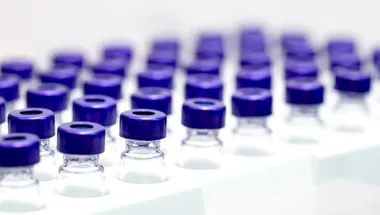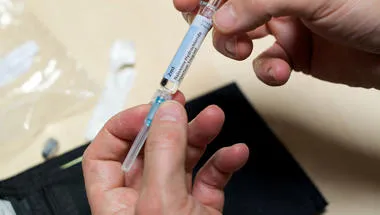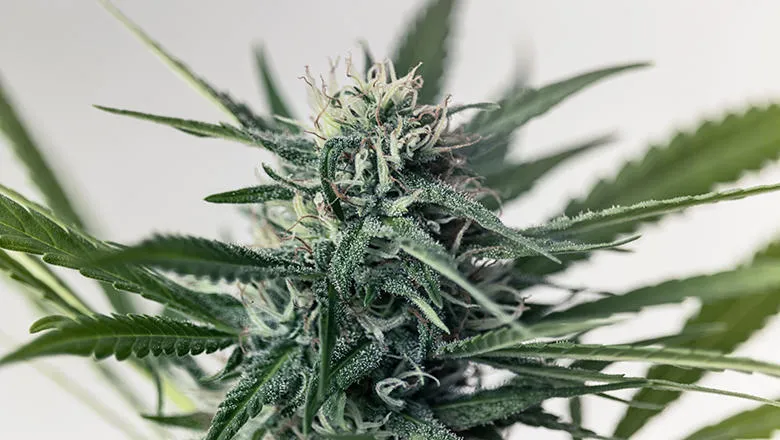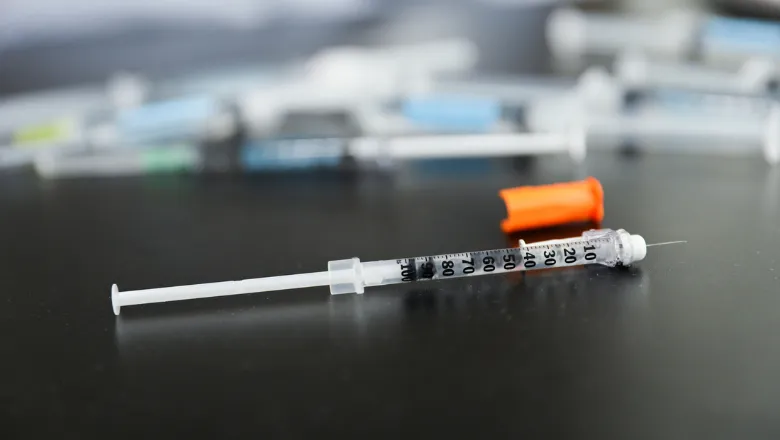
Biography
Professor Sir John Strang - MBBS, FRCPsych, FRCP, MD, F.Med.Sci. - is a leading clinical academic who has conducted extensive addiction research studies and has worked with governments to improve responses to problems of addiction and related complications.
He has worked in the addictions field as a clinician and researcher for 40 years and has had an active interest in working with policy formation. He has lead the addiction group at the Institute since 1995.
He is one of only a small number of senior addictions researchers outside North America identified by ISI (the Institute for Scientific Analysis) since 2000 as a “Highly Cited Author” with a rate of citation in the “top one half of one percent of all publishing researchers in the last two decades”.
He has published extensively in the addictions field, with more than 600 publications.
Research Interests
He has a particular interest in looking for improved treatments in the field of opioid addiction and possible novel strategies for the prevention of heroin overdose deaths. This involves experimental studies, treatment innovations and clinical trials as well as policy initiatives.
Research Groups
Professor Strang provides the overall academic leadership for the Addictions CAG (Clinical Academic Group) within King's Health Partners, which forms one of the core areas of the Academic Health Science Centre (AHSC).
This brings together university partners King's College London with the NHS from South London and Maudsley NHS Foundation Trust, King's College Hospital, and Guy's and St Thomas's. The Addictions CAG, along with other mental health CAGs, is distinctive within King’s Health Partners for crossing the divide between physical and mental health.
Professor Strang has extensive experience as a Lead Clinician working with a wide range of treatments in community and residential settings and has been a Consultant Psychiatrist in addictions treatment for over 40 years.
Expertise and Public Engagement
Professor Strang has chaired and/or served on key committees or guidelines groups for the Department of Health, for NICE (the National Institute of Health and Clinical Excellence) and for the World Health Organisation (WHO). This provides opportunity to bring relevant evidence from new scientific studies and systematic reviews to the policy-making work of these committees.
Declaration of Interests
Professor Strang's employer (King’s College London) has received, connected to his work, project grant support and/or honoraria and/or consultancy payments from Department of Health, NTA (National Treatment Agency), PHE (Public Health England), Home Office, NICE (National Institute for Health and Clinical Excellence), and EMCDDA (European Monitoring Centre for Drugs and Drug Addiction) as well as research grants from (last three years) NIHR (National Institute on Health Research), MRC (Medical Research Council) and Pilgrim Trust.
Professor Strang has worked with WHO (World Health Organization), UNODC (United Nations Office on Drugs and Crime), EMCDDA, FDA (US Food and Drug Administration) and NIDA (US National Institute on Drug Abuse) and with other international government agencies.
His employer (King’s College London) previously registered intellectual property on an innovative buccal naloxone with which Professor Strang is involved, and Professor Strang was previously named in a patent registration by a pharmaceutical company as inventor of a potential concentrated naloxone nasal spray.
Professor Strang's employer (King’s College London) has also received, connected to his work, research grant support and/or payment of honoraria, consultancy payments and/or travelling and/or accommodation and/or conference expenses from pharmaceutical and technology companies (including, past three years, MundiPharma, Camurus, Pneumowave, Accord, Navamedia) and medication or device supply from Pneumowave and discussions with others concerning medicinal or technology products potentially applicable in the treatment of addictions and related problems.
This includes exploration of the potential for, and consideration of research trials of, improved medications with less abuse liability, longer duration of action (e.g. implant or depot formulations), novel non-injectable emergency medications as well as possible wearable devices.
He has been awarded research grant support from NIHR and other funding sources which includes sub-contract tasks for the app development company Q2i/CMI, academic fellowship support from SSA including CM-related app development also by Q2i, innovation grant support from SHIP/OLS/SBRI to explore feasibility of buccal naloxone manufacture by Catalent, as well as sub-contract tasks for ourselves from SME Pneumowave funded by SHIP/OLS/SBRI. We have also collaborated on survey and interview tasks with other partners including Scottish Drug Forum (SDF), DrugFAM and SFAD (Scottish Families affected by Alcohol and Drugs).
Professor Strang has worked closely with the charity Action on Addiction, and also with the Pilgrim Trust, and has received grant support from them. He has previous close links with various charitable funded providers, including Lifeline (Manchester), Phoenix House, KCA (Kent Council on Addictions), and Clouds (Action on Addiction). He is also a Patron of the charity Addiction Family Support (formerly known as DrugFAM).
Professor Strang has previously worked (or works) with various drug policy organisations and advisory bodies including the UK Drug Policy Commission (UKDPC), the Society for the Study of Addiction (SSA), and European Monitoring Centre for Drugs and Drug Addiction (EMCDDA; now EUDA), UNODC (United Nations) and WHO (World Health Organization). JS was a Trustee of the Society for the Study of Addiction (SSA) from 1991 - 2023.
Teaching
- MSc in Addictions
- PhD Students
Highlighted Publications
- Supervised injectable heroin or injectable methadone versus optimised oral methadone as treatment for chronic heroin addicts in England after persistent failure in orthodox treatment (RIOTT): a randomised trial
- Use of contingency management incentives to improve completion of hepatitis B vaccination in people undergoing treatment for heroin dependence: a cluster randomised trial
- Pharmacokinetics of concentrated naloxone nasal spray for opioid overdose reversal: Phase I healthy volunteer study
- New heroin-assisted treatment - Recent evidence and current practices of supervised injectable heroin treatment in Europe and beyond
- Preventing opioid overdose deaths with take-home naloxone
- Opioid use disorder – Nature Review - Accessible via PUBMed
Research

Drugs Research Group
Substance misuse research within the Addictions Department is led by Professors John Strang and John Marsden.

Contingency Management Programme
This consists of five linked research studies which aim to develop a UK Evidence Base for Contingency Management in Addiction Treatment.
Project status: Ongoing

Drugs: Education, Prevention and Policy
Emerging consensus on measuring addiction recovery: Findings from a multi-stakeholder consultation exercise.
Project status: Ongoing


N-ALIVE
Randomised trial of take-home Naloxone to prevent heroin overdose deaths post-prison release.
Project status: Ongoing

Naloxone
Naloxone is an opiate antagonist which reverses the effects of a heroin overdose.
Project status: Ongoing

New heroin-assisted treatment
Recent evidence and current practices of supervised injectable heroin treatment in Europe and beyond
Project status: Ongoing

Preventing blood borne virus infection in people who inject drugs (project PROTECT)
In the UK, around 33%-56% of people who inject drugs (PWID) have hepatitis C. Rates of HIV (0-1%) and hepatitis B (6-18%) are much lower.
Project status: Ongoing

Randomised Injectable Opiate Treatment Trial (RIOTT)
At least 5–10% of heroin addicts fail to benefit from established conventional treatments but whether they are untreatable or just difficult to treat is unknown
Project status: Ongoing

TIES Project
Telephone delivered Incentives for Encouraging adherence to Supervised methadone consumption:development and feasibility study clinical and cost effectiveness.
Project status: Ongoing
News
Experts gather to discuss innovations and strategies to detect and prevent opioid overdose deaths
On Thursday 4 September, King’s welcomed clinicians, policy makers and researchers to share and discuss the latest innovations and strategies to detect and...

Over £5m in NIHR funding for three addictions research projects harnessing AI and wearable technology
The three projects - Prison Release Engagement Trial, the use of virtual reality enhanced cue exposure treatment in people with cocaine dependence, and...

Cannabis intoxication triggers cognitive mechanism of addiction
Researchers suggest that the main component of cannabis, delta-9-tetrahydrocannabinol (THC), could underpin the cognitive mechanisms behind cannabis use...

King's innovative AI projects funded to tackle fatal opioid overdoses
Funding from Office for Life Sciences and the Scottish Government for two new projects, including testing the potential of an AI-powered overdose-detecting...

Cannabis not made safer by increasing its CBD content
New research from the Institute of Psychiatry, Psychology & Neuroscience (IoPPN) at King’s College London has found no evidence that cannabidiol (CBD) reduces...

Winners of the 2022 Addictions Clinical Academic Group Early Career Research Prize announced
Dr Katie East, Dr Basak Tas, Alice Bowen, Eileen Brobbin, and Dr Will Lawn have been announced as Addictions Clinical Academic Group (CAG) Early Career...

New collaboration with digital therapeutics company to investigate preventable opioid respiratory deaths
A new collaboration between the Institute of Psychiatry, Psychology & Neuroscience (IoPPN) at King’s College London and the digital therapeutics company,...

Maudsley Hospital and King's College London's National Addiction Centre lights up purple to raise awareness for International Overdose Awareness Day
International Overdose Awareness Day is a global event held on 31 August each year to raise awareness of overdoses, reduce the stigma of drug-related deaths...

The significant effect of lockdown on gambler's mental health
King’s College London study assesses the potential impacts of COVID-19 nationwide lockdown on longer term depression, anxiety, and stress in gamblers in the UK.

Features
From Lab to Lifesaver: Rethinking How We Detect and Respond to Opioid Overdose
Researchers from the Addictions Department at the IoPPN and NIHR Maudsley BRC Pain and Addictions theme are conducting innovative new studies on opioid...

Spotlight
Preventing deaths from opioid overdose with Take-Home Naloxone
Over the last 10 years, King’s researchers have developed and adapted an innovative approach which mobilises the general public, including drug users...

Research

Drugs Research Group
Substance misuse research within the Addictions Department is led by Professors John Strang and John Marsden.

Contingency Management Programme
This consists of five linked research studies which aim to develop a UK Evidence Base for Contingency Management in Addiction Treatment.
Project status: Ongoing

Drugs: Education, Prevention and Policy
Emerging consensus on measuring addiction recovery: Findings from a multi-stakeholder consultation exercise.
Project status: Ongoing


N-ALIVE
Randomised trial of take-home Naloxone to prevent heroin overdose deaths post-prison release.
Project status: Ongoing

Naloxone
Naloxone is an opiate antagonist which reverses the effects of a heroin overdose.
Project status: Ongoing

New heroin-assisted treatment
Recent evidence and current practices of supervised injectable heroin treatment in Europe and beyond
Project status: Ongoing

Preventing blood borne virus infection in people who inject drugs (project PROTECT)
In the UK, around 33%-56% of people who inject drugs (PWID) have hepatitis C. Rates of HIV (0-1%) and hepatitis B (6-18%) are much lower.
Project status: Ongoing

Randomised Injectable Opiate Treatment Trial (RIOTT)
At least 5–10% of heroin addicts fail to benefit from established conventional treatments but whether they are untreatable or just difficult to treat is unknown
Project status: Ongoing

TIES Project
Telephone delivered Incentives for Encouraging adherence to Supervised methadone consumption:development and feasibility study clinical and cost effectiveness.
Project status: Ongoing
News
Experts gather to discuss innovations and strategies to detect and prevent opioid overdose deaths
On Thursday 4 September, King’s welcomed clinicians, policy makers and researchers to share and discuss the latest innovations and strategies to detect and...

Over £5m in NIHR funding for three addictions research projects harnessing AI and wearable technology
The three projects - Prison Release Engagement Trial, the use of virtual reality enhanced cue exposure treatment in people with cocaine dependence, and...

Cannabis intoxication triggers cognitive mechanism of addiction
Researchers suggest that the main component of cannabis, delta-9-tetrahydrocannabinol (THC), could underpin the cognitive mechanisms behind cannabis use...

King's innovative AI projects funded to tackle fatal opioid overdoses
Funding from Office for Life Sciences and the Scottish Government for two new projects, including testing the potential of an AI-powered overdose-detecting...

Cannabis not made safer by increasing its CBD content
New research from the Institute of Psychiatry, Psychology & Neuroscience (IoPPN) at King’s College London has found no evidence that cannabidiol (CBD) reduces...

Winners of the 2022 Addictions Clinical Academic Group Early Career Research Prize announced
Dr Katie East, Dr Basak Tas, Alice Bowen, Eileen Brobbin, and Dr Will Lawn have been announced as Addictions Clinical Academic Group (CAG) Early Career...

New collaboration with digital therapeutics company to investigate preventable opioid respiratory deaths
A new collaboration between the Institute of Psychiatry, Psychology & Neuroscience (IoPPN) at King’s College London and the digital therapeutics company,...

Maudsley Hospital and King's College London's National Addiction Centre lights up purple to raise awareness for International Overdose Awareness Day
International Overdose Awareness Day is a global event held on 31 August each year to raise awareness of overdoses, reduce the stigma of drug-related deaths...

The significant effect of lockdown on gambler's mental health
King’s College London study assesses the potential impacts of COVID-19 nationwide lockdown on longer term depression, anxiety, and stress in gamblers in the UK.

Features
From Lab to Lifesaver: Rethinking How We Detect and Respond to Opioid Overdose
Researchers from the Addictions Department at the IoPPN and NIHR Maudsley BRC Pain and Addictions theme are conducting innovative new studies on opioid...

Spotlight
Preventing deaths from opioid overdose with Take-Home Naloxone
Over the last 10 years, King’s researchers have developed and adapted an innovative approach which mobilises the general public, including drug users...

